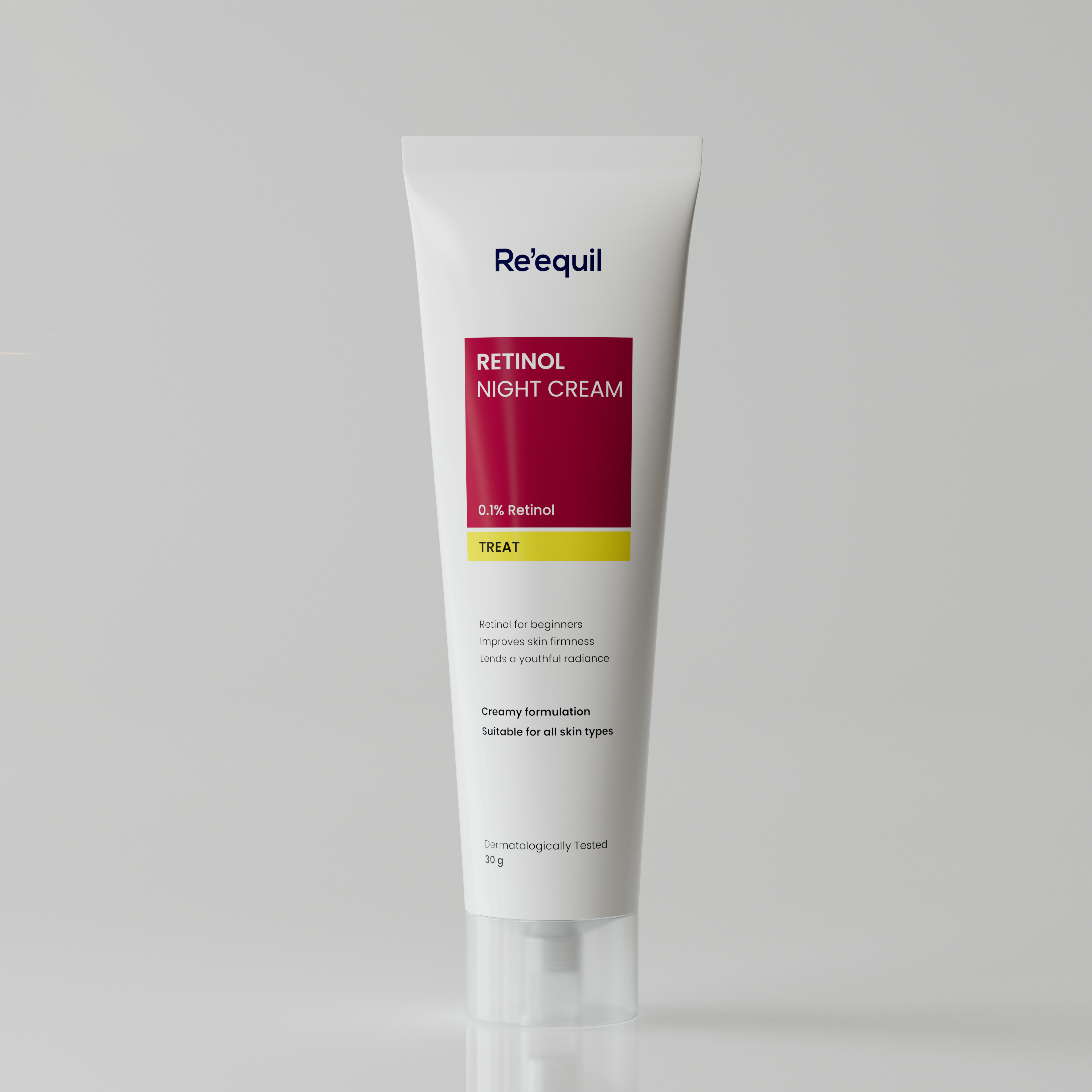That cute packaging on the shelf should not tempt you to impulsively purchase it! It is hard to refrain but it is always better to be mindful of the ingredients, especially when you have acne-prone skin.
It is important to stay informed of what you are feeding to your skin than how appealing its product bottles look on the outside. But hey, don't worry. We are here to guide you through what benefits your acne-prone skin and whatnot—let’s get started.
Beware—these 6 skincare ingredients can trigger acne
1. Sodium Lauryl Sulfate
If you love lathering foam, you might reconsider your affection for it after reading this!
Well, the fact is SLS is a surfactant that is used in almost every skincare product from shampoos to face cleansers as well as disinfectants.
Basically, anything in your skincare range that lathers up is likely to have SLS.
It does have strong cleansing properties and emulsifying properties. But if it is in a larger concentration or if it is used repeatedly, it might cause some problems to the skin.
Rachel Nazarian, MD, of Schweiger Dermatology Group recommends avoiding SLS in higher concentrations as it can cause skin irritations especially in people with sensitive and acne-prone skin.
This is because Sulfates on acne-prone skin can -
- strip off moisture and dry out skin completely,
- damage skin protective barrier,
- cause skin irritation,
- aggravate acne and breakouts.
So, it is better to choose the products that either do not have SLS or have the mildest concentration in order to protect your skin.
How to locate on the label - Sodium Cocoyl Glycinate, SLSA (sodium lauryl sulfoacetate), Disodium / Sodium Cocoyl Glutamate, Decyl glucoside, and Lauryl glucoside.
2. Lanolin
It is animal driven wax, specially from wool animals like sheep. It is used as one of the moisturizing ingredients to treat dry skin conditions.
The downside of this component is that it is comedogenic; it clogs pores. This can worsen the already oily or even acne-prone sensitive skin.
It is also not a good choice for people who are allergic to wool. To avoid this condition, abstain from considering such products.
How to locate on the label - Adeps lanae anhydrous, Aloholes lanae, Amerchol, Anhydrous lanolin, Lanolin, Wool fat, Wool grease, Wool wax.
3. Parabens
There is a great hype around not using products including parabens. Mainly, the reason behind this is that they are added as a preservative to the makeup as well as skincare products.
And various research studies show that parabens tend to affect the hormonal balance inducing harmful side effects on skin and body, if continued.
Also, they make the skindry and brittle and may induce rash. So, it is better to avoid parabens in your skin care products for acne-prone sensitive skin.
How to locate on the label -Methylparaben, Propylparaben, Butylparaben, and Ethylparaben, Isopropylparaben, parahydroxybenzoateand Isobutylparaben.
4. Stearic Acid
This ingredient is present as an emollient in skin care products. It helps in lubricating and softening skin.
But despite these properties, stearic acid can be harmful to acne-prone skin.
This is because of the fact that it has the ability to clog pores. It can provoke acne on the skin or even worsen it.
So, it is recommended to steer away from stearic acid if you have acne-prone skin.
How to locate on the label - Century 1240, cetylacetic acid, Emersol 120, Emersol 132, Emersol 150, Formula 300 and Glycon DP.
5. PABA
It is one of the most common ingredients present in sunscreens. PABA (Para-aminobenzoic acid) is included as a UVB filter in many sunscreens.
Nevertheless, it can penetrate into the skin causing allergic reactions. It can cause dermatitis in sensitive skin as well. PABA has been banned in Canada and Europe.
So, if you see PABA in your product labels, try to put it back on the shelves.
How to locate on the label - PABA is also known as padimate O, OD-PABA, or octyl dimethyl p-aminobenzoate
6. Oxybenzone
If you are looking for a sunscreen to suit your acne-prone skin type, watch out for oxybenzone as one of its ingredients.
According to recent studies, this chemical component can seep into your skin layers and may disrupt hormones.
It is also known to provoke acne on sensitive skin or acne-prone skin as such skin type already has quite a weak protective barrier. As a result, bacteria may multiply and harm your skin.
How to locate on the label - Benzophenone-3 and sometimes Milestab 9, Eusolex 4360, Escalol 567, or KAHSCREEN BZ-3
Now you know what to keep away when you spot any of the above ingredients on skin care products you are planning to buy. But don’t lose heart. Here are great ingredients that can give you miraculous results for your acne-prone skin. Read along to know more.
Here are 9 skincare ingredients that are perfect for acne-prone skin
1. Zinc PCA
If you are on a hunt for balancing oils on your excessively oily skin, then Zinc PCA is your perfect destiny.
It is known for its amazing properties like
- anti-inflammatory,
- anti-microbial, and
- sebum regulation.
It is one of the active ingredients in face cleansers for oily and acne-prone skin.
2. Granactive™ ACNE
It is a botanical complex which is a specialized ingredient to cure acne symptoms. It is mainly used as antimicrobial peptide in serums to work upon acne infections or lesions.
Granactive™ ACNE is famous for its anti fungal, antibacterial actions. It can give great results when combined with OTC products like salicylic acid.
3. Salicylic Acid
Salicylic acid is a well known ingredient in topical treatments for acne. It gets its reputation for skin exfoliating properties that can smooth out scaly or dry skin.
It helps in unclogging pores and freeing it from bacteria. Also, it heals acne from redness, swelling and infections. When used in a balanced concentration, it gives you optimum results. It is available in ointments and serums.
4. Glycolic Acid (AHA)
It is a mild exfoliant that gently sloughs off dead debris from the skin. Hence, it prevents clogging of the pores.
Glycolic Acid when paired with Salicylic Acid works well on acne spots. Salicylic acid weakens the chemical bond between dead cells, while Glycolic acid helps to extract and remove the dead cells from the surface of the skin.
5. Niacinamide
It can be referred to as a magic ingredient for skin. Research shows that Niacinamide can visibly reduce the size of enlarged pores and hence is very effective in treating acne-prone skin.
With its oil balancing properties, it can regulate sebum production thus, reducing the chances of acne. Furthermore, it is anti-inflammatory which calms redness on skin. Also, it can restore that protective barrier of skin.
Right concentrations of Niacinamide can give you desired results for your acne-prone skin.
6. Sodium Ascorbyl Phosphate
If you are confused whether vitamin C can be used on acne-prone skin or not, here is the answer for you!
SAP (Sodium Ascorbyl Phosphate) is the specialized form of vitamin C which is water soluble. It has amazing antioxidant properties. But apart from that, it is used to treat acne wherein it helps in treating breakouts and fading dark acne spots.
Its regular use can impart a glow and shine on your skin. SAP can be an effective choice for acne-prone skin.
7. Tris-Biphenyl Triazine
The International Journal of Pharmaceutics suggests that Tris-Biphenyl Triazine is one of the effective UVA and UVB filters used in sunscreens. Even at low concentrations, it gives great coverage. It is also a photostable ingredient.
8. Oligopeptide-10
It is a special class of peptides which have strong antimicrobial properties. It can be a great ingredient in your skin care products if you have acne-prone skin as it acts quickly on p. Bacterium that is responsible for causing acne.
In addition to this, for acne-prone skin, peptides with salicylic acid have a strong impact in refining skin texture. Also, it offers wonderful skin rejuvenation with Niacinamide.
9. Boswellia serrata resin extract
This one is a natural ingredient. It has amazing skin calming properties for acne. Furthermore, it has been famous in yesteryears for treating inflammatory skin conditions.
There are numerous ways to inculcate these ingredients in your skin care routine - face wash, acne clarifying gel, serums, moisturizers, and sunscreens.
Don’t let beautiful packaging fool you while it harms your sensitive skin. Understand what your skin needs and go for that particular ingredient and add to your healthy skincare routine.


































